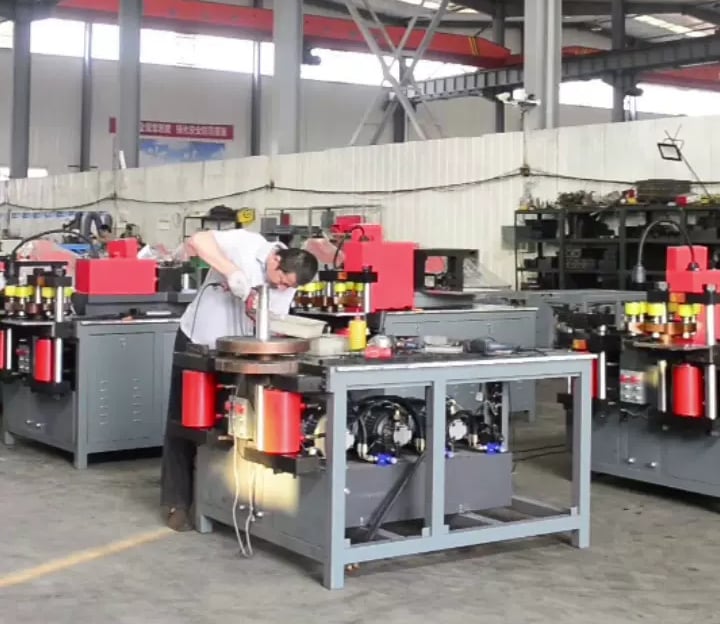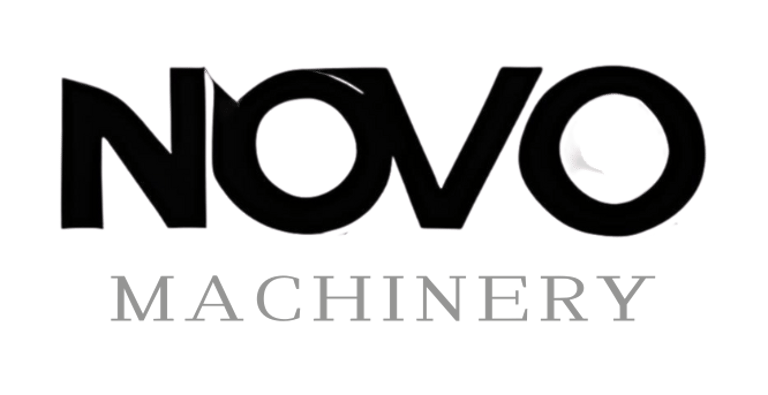Africa's Small Workshops Must Survive: 3 Entry-Level Busbar Machines in the $10,000 Range Tested (Nigeria/Kenya)
7/3/20255 min read


Introduction to Busbar Machines and Their Importance
Busbar machines are specialized equipment designed to manufacture busbars, which are conductive bars utilized for distributing electricity within electrical systems. They play a pivotal role in medium and low-voltage substations, switchgear, and electrical panels. Busbars provide a compact and efficient means of conducting and distributing electrical energy, thereby enhancing the reliability and safety of power systems. In particular, these machines can fabricate busbars in various shapes and sizes, catering to diverse applications in electrical engineering.
The current landscape for small workshops in Africa, notably in Nigeria and Kenya, presents both challenges and opportunities. As local businesses strive to meet the growing demand for electrical components, the need for accessible and efficient machinery becomes paramount. Unfortunately, many small workshops face budget constraints that limit their ability to invest in high-quality busbar manufacturing equipment. The introduction of affordable, entry-level busbar machines priced within the $10,000 range is critical as it offers these workshops a chance to remain competitive while fostering growth and innovation within the electrical industry.
These entry-level machines not only assist in streamlining production processes but also empower local artisans and entrepreneurs by providing them with the tools needed to enhance productivity and output quality. This development can lead to job creation and the establishment of a more robust local economy, supporting not only the producers but also the wider communities that rely on reliable electrical infrastructure. In this context, the testing of specific busbar machines fulfills a significant need, illustrating the tangible benefits such tools can offer to small workshops striving for sustainability and scalability in an evolving market.
Criteria for Selection and Testing of Busbar Machines
In assessing the three busbar machines suitable for small workshops in Africa, a comprehensive set of criteria was established to ensure that the selected equipment is not only cost-effective but also meets the specific needs of local markets. Key factors considered in this selection process included cost, reliability, ease of use, maintenance demands, and production quality.
The overall cost of the busbar machines was crucial, with a target budget of $10,000 serving as a benchmark. Affordability plays a significant role in determining whether small workshops in Nigeria and Kenya can successfully acquire and utilize these machines. Thus, the initial purchase price was thoroughly examined alongside the long-term operational costs, such as energy consumption and the expense of replacement parts.
Reliability was another vital criterion, as small workshops require machines that can withstand frequent use and deliver consistent performance. The ability to operate efficiently over an extended period without frequent breakdowns ensures that these workshops can maintain their productivity and meet market demands.
Additionally, we evaluated the ease of use of each machine, recognizing that many operators may not have extensive technical expertise. User-friendly interfaces, along with straightforward operation and maintenance procedures, were essential attributes. Machines that require minimal training and are intuitive to operate would be more appealing to small workshop owners.
Maintenance requirements also played a significant role in the selection process. The upkeep of the busbar machines must be manageable, ensuring that small workshops can maintain functionality without incurring excessive costs or downtime. This includes considering the availability of spare parts within the local market.
Lastly, the quality of the busbars produced was assessed by examining production metrics, including precision and durability. The capability of the machines to produce busbars that adhere to local standards and are competitive in the market was imperative. This testing process provided valuable insights into how well each machine aligns with the operational demands of small workshops in Africa.
Review of Three Tested Busbar Machines
In evaluating the essential tools for workshops across Africa, we focused on three specific busbar machines within the $10,000 range. Each machine has been rigorously tested for specifications, performance, and value for money, providing insights for workshops seeking to optimize their operations.
The first machine, the Model A400, is notable for its compact design and robust build. It features a user-friendly interface and can process up to 200 mm² copper and aluminum busbars. During testing, the A400 demonstrated exceptional cutting speed, significantly reducing operational downtime. However, its limitation lies in its inability to handle larger busbar sizes efficiently, making it less suitable for heavy-duty applications. Overall, the A400 is an excellent choice for small to medium workshops requiring a reliable, versatile machine.
The second option, the Model B600, comes equipped with advanced technology for precise measurements and cuts. This machine caters to larger busbar sizes, accommodating up to 300 mm² material. Performance-wise, the B600 impressed testers with its accuracy and minimal waste production. Its primary disadvantage is its higher energy consumption, which might impact operational costs in the long run. Nevertheless, for workshops focused on high-quality output, the B600 provides excellent value.
Lastly, the Model C300 is designed as a budget-friendly alternative, offering solid performance without compromising basic functionality. It supports various busbar sizes, up to 150 mm², and has a reputation for durability. However, users noted a slight lag in production speed compared to the A400 and B600 during testing. This machine is best suited for workshops that prioritize affordability while still requiring a dependable option.
Each of these machines presents distinct strengths and weaknesses, making them suited to different workshop needs. By understanding their specifications and performance, operators can make informed decisions tailored to their specific applications.
Recommendations and Conclusion for Small Workshops
As the demand for efficient production rises in small workshops across Nigeria and Kenya, it is essential for workshop owners to prioritize the acquisition of effective and suitable equipment. The tested entry-level busbar machines, each priced around $10,000, represent a valuable investment for operators seeking to enhance their manufacturing capabilities. These machines not only optimize operational efficiency but also significantly reduce the time required for busbar fabrication, thereby allowing workshops to meet increasing customer demands without compromising on quality.
Workshop owners should consider the specific needs of their operations when selecting machinery. Investing in busbar machines that align with the production scale and product requirements can greatly impact overall productivity and profitability. Furthermore, consolidating resources to purchase equipment collectively could also prove beneficial, reducing individual financial burdens while boosting communal skill development and technology sharing among small workshops.
In addition to equipment investment, continuous training and upskilling of the workforce remain paramount. Workshops must develop a culture of learning, where employees are encouraged to enhance their skills in operating advanced machinery. This strategy not only increases the effectiveness of the technology but also empowers workers, thus creating a more competent workforce capable of adapting to the evolving market demands.
Supporting local industries and small workshops is crucial for economic development in Africa. The potential impact of these entry-level busbar machines can translate to job creation, driving innovation and economic growth within communities. Local governments and institutions should facilitate access to technology and funding opportunities, ensuring small workshops can thrive in a competitive marketplace. Ultimately, by prioritizing the right investments in machinery and workforce development, small workshops can establish a sustainable path towards growth and success in the ever-changing economic landscape of Africa.
Innovate
Leading manufacturer of busbar processing equipment solutions.
Contact
Support
+131 2713 4627
© 2025. All rights reserved.
